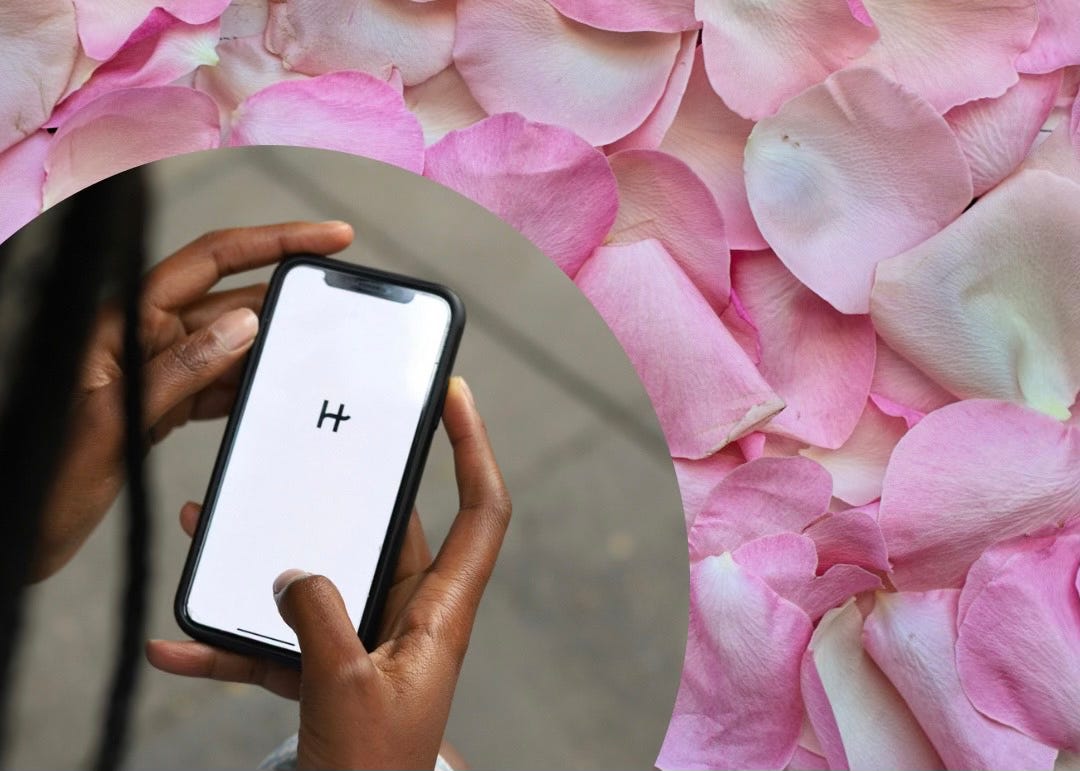Last month, a woman’s post calling for help finding her husband went viral. Ashley McGuire had been pregnant with her husband’s baby when he ghosted her. Permanently. A year later, still desperate to find him so that she could divorce him and move on with her life, she turned to the power of Facebook. In less than 24 hours, he’d been found.
It’s a compelling story, one that’s hard to criticise given the extreme nature of the man’s actions. After all, you’re obligated to let someone divorce you if you completely abandon them—one would think that’s the very least you could do. And yet, it opens up the door to the wider conversation of online doxxing, something which - when observed more broadly - is certainly fair game for criticism.
There was a time when dating sites (note ‘sites’ not ‘apps’) were fairly private. From the comfort of a desktop computer, you were largely safe from screenshots, recording devices and accidentally going viral because you did something a bit cringe. Today, not so much. Signing up to an app like Hinge seems to come with an invisible disclaimer that anything you share may also get shared elsewhere—sometimes anonymously, sometimes not. Doxxing - the act of revealing identifying information about someone online - is rife at the moment. And while we might see it as justice for a man who abandons his pregnant wife without explanation, so too can it be a catastrophic, life-altering blow for someone whose dating profile simply irritates or amuses someone else.
This leads me to a new and interesting online dynamic: the cheating sleuth groups. Sometimes home to thousands of members, Facebook and TikTok groups titled “Are we dating the same guy” and “Is my boyfriend on Hinge?” are growing in popularity. The premise? Upload a photo of your partner or romantic interest and wait for the information to start rolling in. Best case scenario, they’re unrecognised and you can breathe a sigh of relief. Worst case, you get to hear about all the gut-wrenching sexy fun they’ve been having, from the person they’ve been having it with.
There are lots of problems with this dubious method of ‘online court’. For starters, if your suspicions are unfounded, you’ve now shared your partner’s face, profile and other identifying information with thousands of strangers…without their consent. At this point, you might start to think that an open, honest conversation about your feelings would’ve sufficed. But, even if you get the information you’re dreading - yes, they’ve cheated and yes, you now want to vomit pure adrenaline - there’s no concrete way of proving it. It’s your partner’s word over the word of online strangers—strangers who may or may not have their own motives for doxxing someone. And then, there is the final problem. It’s a hard pill to swallow, but cheating - no matter how devious, how sickening, how upending - is not a crime. Revealing someone’s identity and information, however, can be.
As someone who was once cheated on in a relationship, I can see why so many people are attracted to these kinds of groups. Your gut is telling you something is very wrong, but your partner won’t give you the grace of honesty. You're desperate to flip the rock, to see what horrible, sticky truths might live underneath, but alone, you don’t have the strength or the knowledge to lift it. And yet, our gut instincts and insecurities aren’t going to be cured by a Facebook group. We cannot rely on these places to give us what we crave in a relationship: trust, honesty, privacy and intimacy. Instead, we can only hope to find peace through conversation and introspection.
And if - after enough time, dodged conversations and unsettled instincts - you’re still unable to trust the fidelity of the person you’re with, it might be time to trust yourself and leave without solid proof, but with your head held high.
For more writing and poetry, follow me on Instagram @alannaduffield





